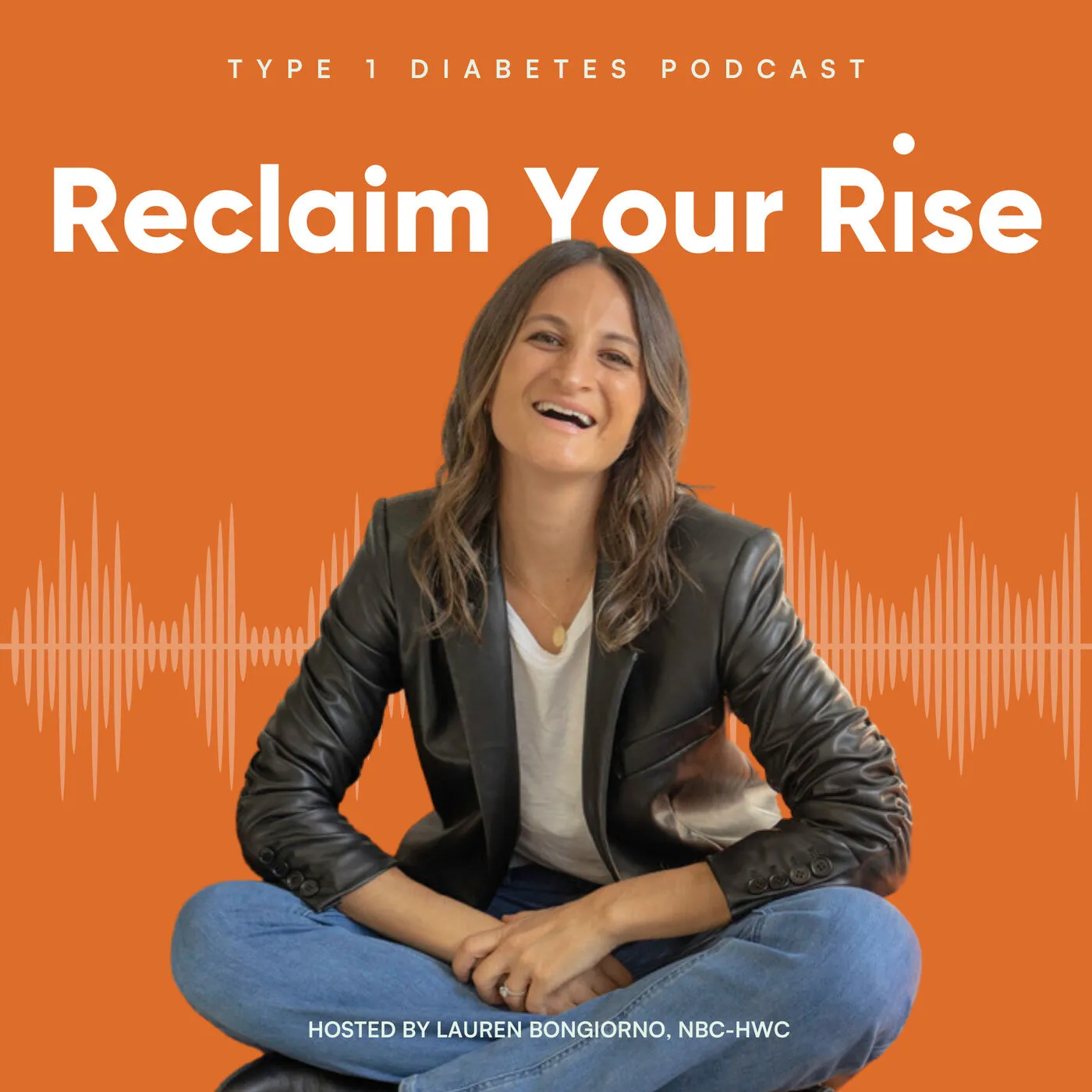You’re a parent. You’re a spouse. You’re in a helping profession. You’re everyone’s go-to shoulder to cry on.
The people in your life describe you as selfless, generous, thoughtful, and caring.All wonderful qualities and the world needs more people like you.
BUT… is it possible that your BEST personality trait is also what has kept you from feeling really good about your T1D?
In episode 67 of the Reclaim Your Rise podcast, Lauren spoke with coaching graduate Nikki Abara who has lived with T1D for 43 years. Nikki started coaching in January 2021 with an A1C of 8.3 and 40% time in range, and after coaching, she was able to lower it sustainably to a 6.6 with 80% time in range for the first time in her life.
Nikki remembers a visit with her endocrinologist before she started coaching that made her realize that her A1C wasn’t going to improve just by trying to improve the tactical aspects of diabetes. She realized, “all those things that you learn from a clinical perspective - I had all that. I had that for years, but I could never really balance my life and apply it in a way that really could help me day to day.”
As a wife, mother of 3 kids ages 14 to 22, and a pediatric ER nurse, Nikki’s biggest struggle was figuring out how to prioritize her diabetes to be able to implement all of the things she KNEW would help.She reflects on this core challenge:
“How do I balance the time for myself? I'm at work and my Dexcom is going off and I'm just clicking, you know, okay, okay, okay… but I'm not doing anything about it. On the outside you would be like, ‘well, why are you not doing anything about it?’
I don't know, but I'm busy and I got a patient to take care of and I'm hitting ignore for myself.So I think, ultimately what it came down to in the end was really prioritizing myself. And I don't think that I probably ever really did that. In a way it almost felt selfish. And I remember even when I decided to join the coaching, I had a serious talk with my husband and I was apologizing, like, ‘I'm sorry that I really need to do this.’ And he was like, ‘what are you talking about? Do it, we're gonna be fine.’
That's probably my personality - I'm pretty selfless. But I think that also meant that I kind of ignored myself and did not prioritize myself. And so that was the first leap that I had to kind of get over. And then from there it was really putting like actionable things into play.”
Can you relate? Does it feel selfish to you to put your attention into your diabetes because that means spending time on yourself?
Here are 3 questions to consider:
- Instead of seeing your diabetes as taking away from your ability to be the mother/family member/ friend/employee or whatever it is that you want to give your all to, can you start to view it as a part of you that when given care and attention, will actually allow you to be even MORE present in all of the other areas of your life?
- Instead of viewing diabetes as something separate from yourself, can you spend a day observing just how interconnected it is to your mood, your energy, your mindset? How does your perspective shift when you see it as a part of everything else?
- Instead of feeling ashamed that you can’t figure out your diabetes, can you think beyond what you’ve up to this point and consider different avenues of support? Maybe you need to be more open about it instead of keeping this struggle to yourself. Maybe you need to seek accountability and relatability through community.





